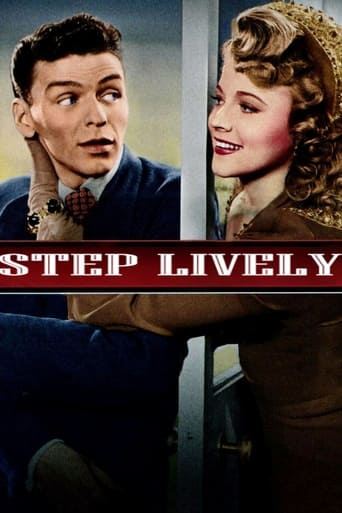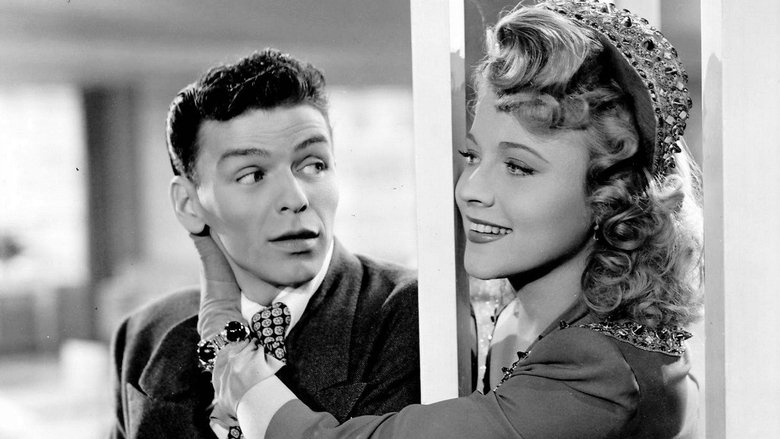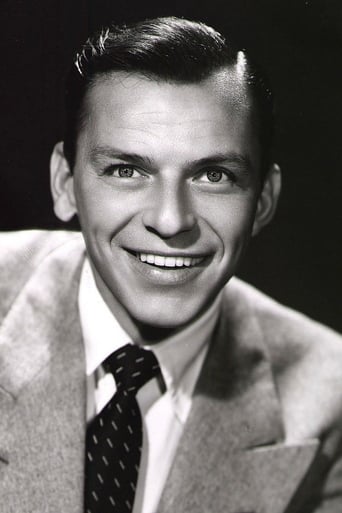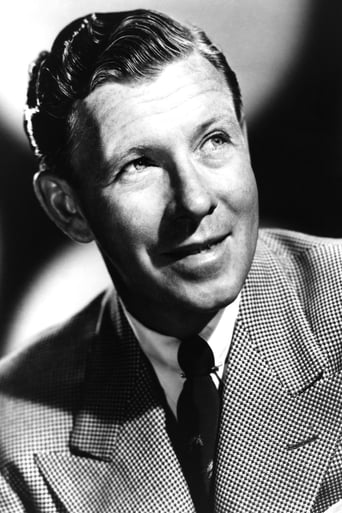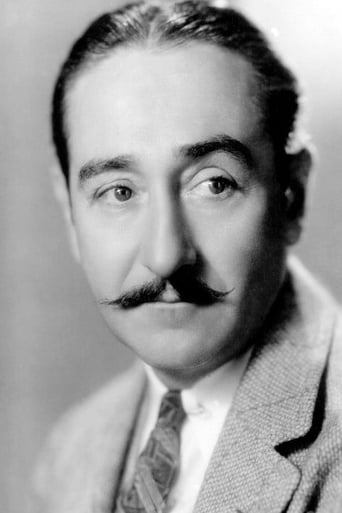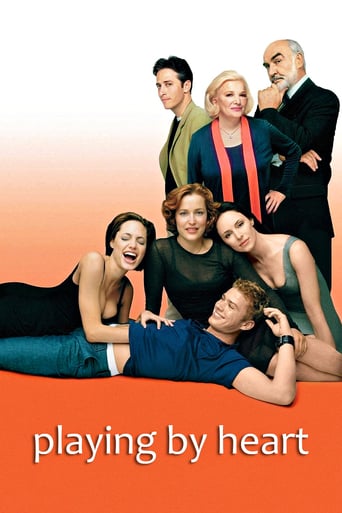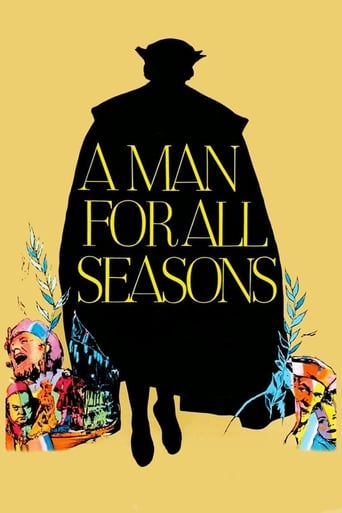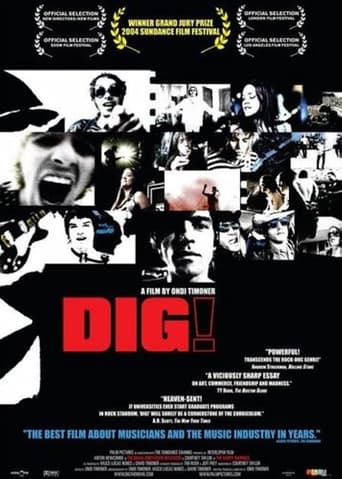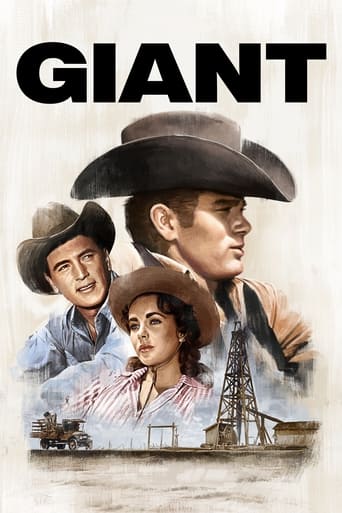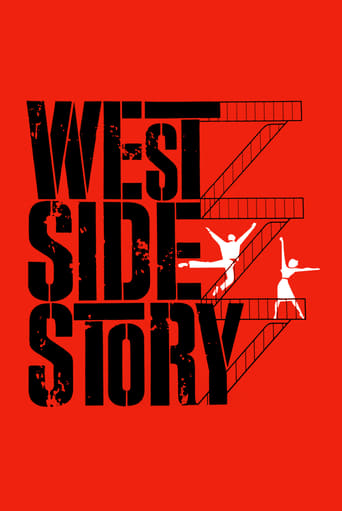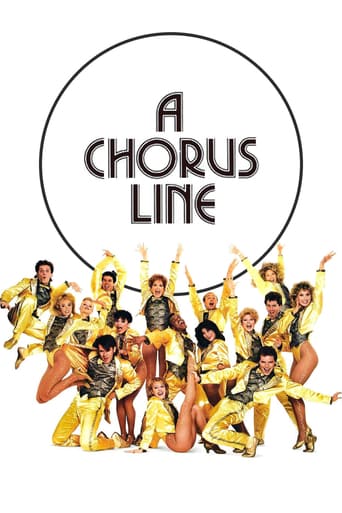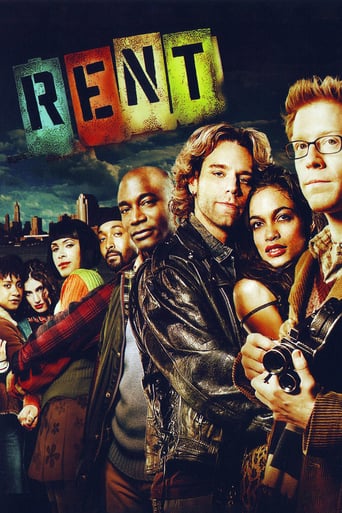Step Lively (1944)
Fly-by-night producers dodge bill collectors while trying for one big hit.
Watch Trailer
Free Trial Channels
Cast


Similar titles
Reviews
What makes it different from others?
Lack of good storyline.
The tone of this movie is interesting -- the stakes are both dramatic and high, but it's balanced with a lot of fun, tongue and cheek dialogue.
Through painfully honest and emotional moments, the movie becomes irresistibly relatable
Yes, it's a flimsy but very funny, fast-paced script. George Murphy's brief dancing and comic delivery is excellent. Sinatra is terrific in his young, vibrant, handsome and romantic best. His ever move from his first entrance shows natural skill and timing. The songs are vastly better than most 1940s musicals. Cone Out Wherever You Are sticks with me for days whenever I hear it. DeHaven is gorgeous as us AnnJeffries. Whenever I watch a film like this I lament that there is no well known talent alive today that could duplicate this film with 1/2 the charm.
In this comedy of errors, a broke producer is staying in a swanky hotel without paying his bill. His excuse? He's producing a hit Broadway musical and will soon come into a lot of money. It's not enough that the hotel owner is about to evict him, the playwright he's also scammed out of a bundle of money under the pretense that he'll produce his play shows up and demands to see the show! The producer discovers that the playwright can sing, and he tries to persuade him to star in his musical, hoping he won't notice that the drama he originally wrote will never see the light of day.The playwright is played by Frank Sinatra, in his first acting role where he doesn't play himself. The first four films he acted in, he literally played Frank Sinatra. Although he does sing several songs in this zany 1940s musical, he must have been relieved to play a character with a different name. Jule Styne and Sammy Cahn wrote the songs for Frankie and Gloria DeHaven, but unless you're a die-hard fan of silly musicals, this one will probably feel a little campy and tiresome. If you like very light-hearted stories, like On the Town or Take Me Out to the Ball Game, you find good company in Step Lively.
This lively forgotten musical romantic comedy will probably remind you of the style of some of the B&W Rooney-Garland films of the early '40s, with some of the musical numbers impromptu romantic songs, while others are elaborate staged productions, It may also remind you of the Marx Brother's "Room Service", upon which the background story is based. Along with some other reviewers, I think you will find it clearly the most entertaining film in the current Sinatra Early Years DVD collection. You may even find it on par with or better than the 3 later Kelly-Sinatra films. You will get a rare opportunity to hear and see Gloria DeHaven in her youthful heyday, with lots of singing opportunities. Too often, she just got to sing one song when included with other female singers and dancers. I often prefer her smooth sexy voice to that of Garland's. We also have Anne Jeffreys, who sings a couple of songs. I can't complain about her singing or acting either. And George Murphy, who probably has the most screen time of any actor, can sing , tap dance and act, with a fair dose of charisma. He had previously costarred with Garland and Kelly in "For Me and my Gal", and was featured in "Broadway Melody of 1940" and "This is the Army"Here, I would like to describe in some detail the various musical numbers, and skip commenting on the background theatrics and comedy, which others have summarized(except to agree that there is too much shouting between the various characters). There are 8 musical numbers, featuring 6 songs. Murphy and Gloria, backed by a mixed chorus,start things off with a rousing staged "Where Does Love Begin?"(and friendship end?), which includes some tap dancing by Murphy...Next, another staged production, featuring Gloria in a bubble bath, surrounded by a female chorus, crooning the catchy "Come In, come In, Wherever You Are". A male chorus changes the lyrics to "Come Out", and she emerges(beautifully clothed). Gloria, various males and Sinatra then take their turns singing a reprise, followed by a Gloria-Sinatra romantic dance..In the next musical scene, Sinatra croons "As Long as There is Music" to Gloria. Anne Jeffreys overhears, and becomes infatuated with Sinatra. Later, she catches Sinatra in a phone booth and makes a play for him, but he resists, preferring the tamer Gloria.He escapes and she chases, while they take turns singing bits of a modified version of the opening "Where Does Love Begin?".Finally, he pushes her into an elevator , where she becomes entangled with others, while he escapes down the stairs..Later, Sinatra and Gloria resume their romance. They take turns,back and forth, sometimes as a duet,singing "Some Other Time", with dancers in the background. Ironically, Sinatra soon after gets angry with Gloria about some performance credits and supposedly quits the show for some distant destination(to later return and make up).. Now, we are ready for another floor show. Anne Jeffreys is the lead singer, with female chorus, in the rousing "Why Must there be an Opening Song?" This is soon followed by an elaborate Ottoman-themed stage production, featuring the complex song "Ask the Madame", led by turbaned Murphy, who functions as the MC, periodic singer and magician. It also features the periodic singing of fortuneteller Gloria, and choruses. One of the scenes has a row of women hidden in apparent baskets, which will later function as their dresses in a dance.To the music of a flute, their gloved hands and forearms emerge, convincingly mimicking swaying cobra heads. Quite an interesting show, including Murphy's magic tricks.Now, we are ready for the final music number, impressively staged, if not nearly as interesting as the previous one. It features a reprise of "As Long as there is Music", which Sinatra previously crooned to Gloria. Sinatra, in a spotlight on an otherwise dark stage, starts things off, soon joined by a female chorus, all in white. Gloria then descends a long cloud-like staircase, while singing, as if a goddess descending from heaven. She and Sinatra then duet while dancing. Murphy and dance partner then sing and dance, with gleaming white columns and chandeliers in the background, against a pitch black backdrop. All file out into the audience, while singing, and the 3 stars say goodbye.Sound like a fun time? You bet! Too often, in his other '40s films, Sinatra was portrayed as a skinny timid romantically naive halfwit, and had to suffer the ultimate romantic rejection of a Kathryn Grayson("Anchor's Away", "It Happened in Brooklyn") or Esther Williams{"Take Me Out to the Ball Game") or meekly surrendered to the sudden Anne Jeffreys-like infatuation of man-hungry Betty Garrett(last title, and "On the Town").
Do you like good romantic music with beautiful vocals and crisp clear images? Certainly you do. But if you're looking for "Citizen Kane" or "Gone With the Wind" then you too should be gone and not allowed to comment on this sparkling gem. The film was made in 1944 with a gorgeously tender 19-year-old Gloria DeHaven and a 29-year-old Frank Sinatra in perfect voice. The songs are perfect: Where Does Love Begin (and where does friendship end), Some Other Time (I could resist you), Ask the Madam (she knows it all), and the fantastic Come Out (wherever you are) featuring Gloria in a bathtub in the final year of her teenage glory. Good God how could anyone resist the lure of this film? Now I will admit that George Murphy and company are way over the top as far as vociferous antics are concerned and they are certainly no match for this film's progenitors, Room Service, and the Marx Brothers. And I admit that according to IMDb the film did not do well at the January 1945 box office when it was released. But then honestly if you consider the fact that the USA was fighting for its life in World War II and it was frigid throughout half of the country that is extremely forgivable. Just ask yourself how many Academy Awards are ever given to films released in January! So in summary I suggest that this movie is artistically filmed, delightfully cast and a true beauty in every way. However I do suggest that you turn down the sound until Frankie and/or the incredibly delectable Miss DeHaven (or even Mr. Murphy) begin to sing. Watch the crip clean contrasts of the film and immerse yourself in the perfect images captured and then when the greatest song phraseologist of the 20th century, Frank Sinatra, or his distaff partner, gloria DeHaven, open their mouths to sing turn up the volume and luxuriate in the fantastic melodies and harmonies from Gene Rose, Alex Stordahl and C. Bakaleinikoff. This is a film to immerse oneself in and feel the joy of life and love rather than tear apart pretending one is some sort of Ebert and Roper tyro. This movie is an emotional rejuvenation. Frankly I love this film, Gloria DeHaven, and the era in which it was made; the greatest generation as Tom Brokaw would say. If you're out of high school and capable of any sincere feelings you will love it too.

